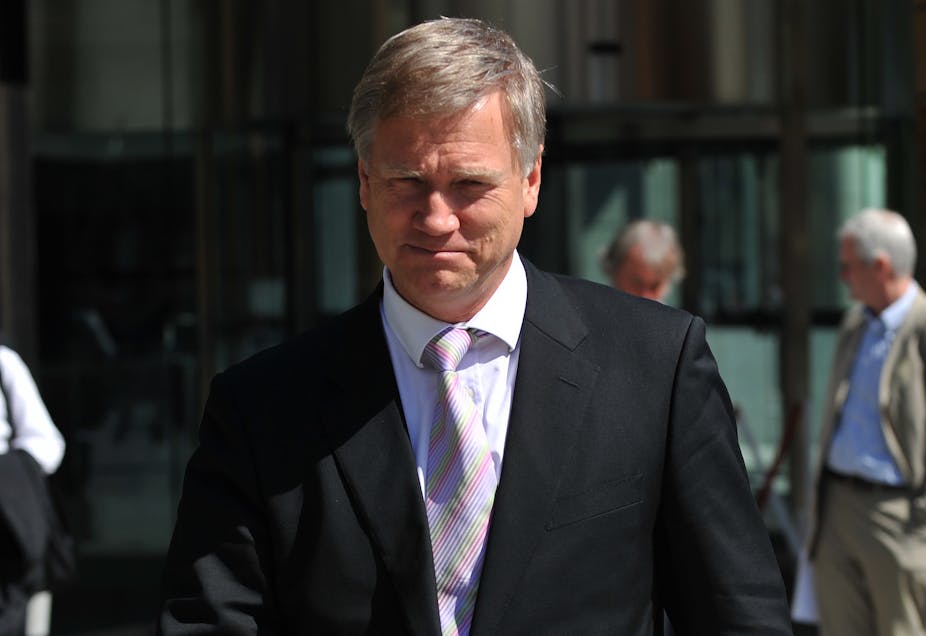Columnist and commentator Andrew Bolt has lost his racial discrimination case in the Federal Court.
The action under the Racial Discrimination Act had been brought by nine Aboriginal people including high profile figures like Sydney academic Larissa Beherendt who claimed Bolt had discriminated against them by alleging they had sought professional advantage due to their Aboriginality.
Judge Mordecai Bromberg said he was satisfied that the plaintiffs had been “offended, assaulted, humiliated or intimidated by the imputations conveyed by the newspaper articles”.
The claim revolved around a series of pieces written by Bolt in his Herald Sun column around light-skinned Aboriginal people.
The Conversation spoke with media expert Bridget Griffen-Foley about the potential impact of the ruling.
What damage will this do the Andrew Bolt brand?
None. Bolt promotes himself as “Australia’s most controversial columnist”, and the verdict will just endorse that brand. I’m sure Bolt would prefer not to have gone through the rigours of a class action, and he will probably be a little more careful in some of the things he writes, but his brand won’t be damaged.
Will this mark a toning down in the hysteria of debate among the Australian commentariat?
I doubt it. I’ve always been reluctant to use the term “shock jock” in the Australian context since the phenomenon arose in relation to a particular type of American talk radio.
But since the election of the minority Gillard government, I’ve reluctantly concluded that it is valid to use the term “hate media” in the Australian context.
Sydney talkback hosts such as Alan Jones, Chris Smith and Mike Smith, and columnists including Andrew Bolt, have inflamed political passion and discontent as never before in Australia. I think this decision may only add to the hysteria.
As a historian, I can recall only one other time – News Ltd’s coverage of the events of 1975, when journalists went on strike in protest – that issues related to the media have been debated with such fervour.
Is it likely, paradoxically, that this will only increase Bolt’s stature among his faithful: they are trying to silence him?
I suspect this will be the case. In the last week or so allegations (largely from News Ltd) have been flying around about attempts to silence the media as a result of the announcement of an inquiry into print and online media.
Bolt himself wrote on his own blog, which has an enormous following, earlier today, before the case against him was decided: “Labor’s attack on a free media is frightening … The Gillard Government is also proposing a single regulator of all journalism, able to punish and to censor”.
A couple of weeks ago we saw Bolt silence himself when he became embroiled in a messy affair involving allegations about Gillard’s past propagated by Mike Smith and Glen Milne.
While Bolt may restrain himself from commenting on the result of the court case, he won’t be stripped of his voice as Derryn Hinch has been, although Hinch’s preoccupations were always personal rather than ideological.
Is there a genuine threat to media freedom from this decision?
Like most media academics and commentators, I’ve never liked to see legal action taken against the media. But I can understand why a group of Aborigines would be grossly offended by the claim that they had chosen to identify themselves as “Aboriginal” in order to win grants, prizes and career advancement.
It’s worth noting that the plaintiffs didn’t seek damages from Bolt and the Herald & Weekly Times; what they sought was an apology and an order against republishing.
What will be most fascinating to see, in the short term, is how Bolt handles the requirement that he apologise to the nine complainants.

